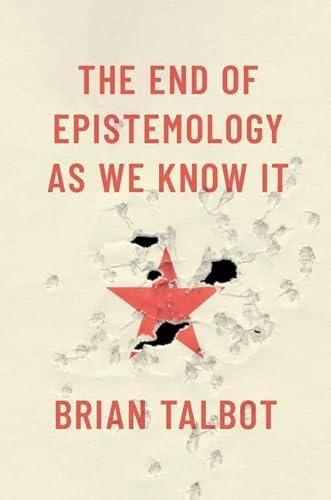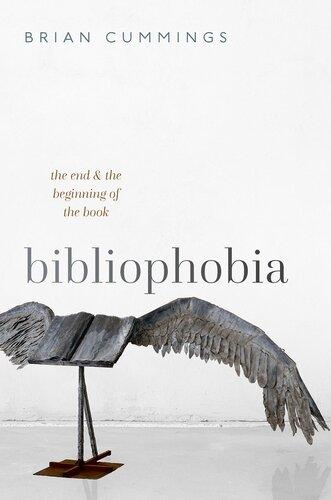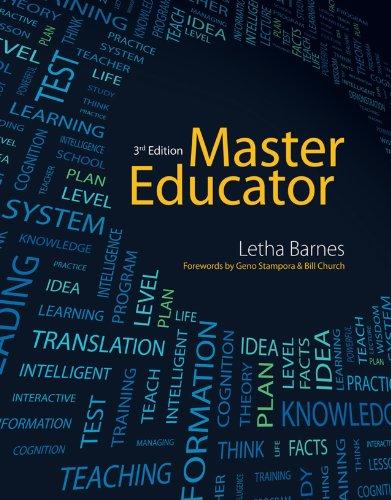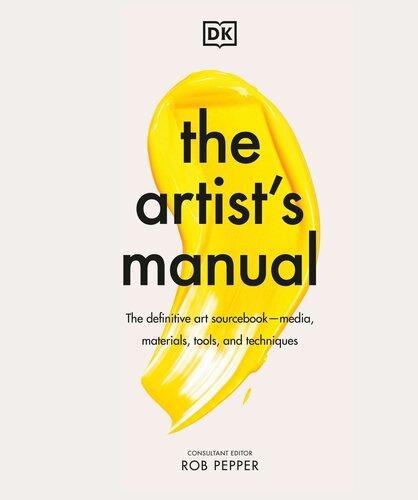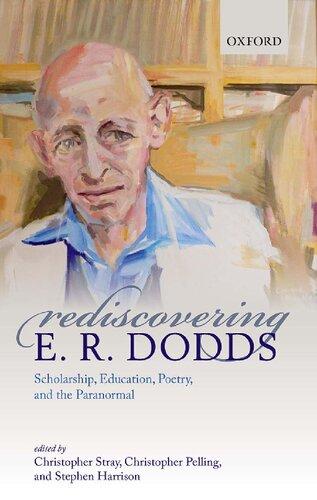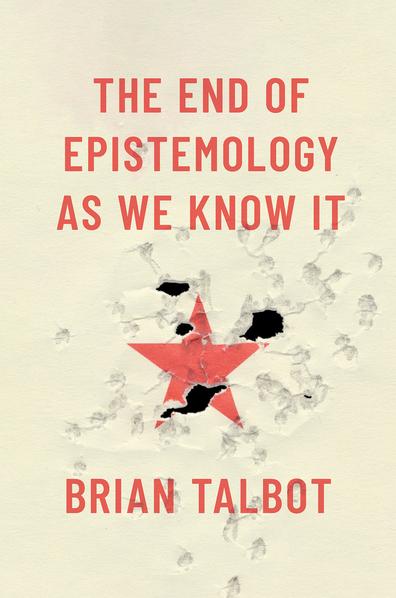https://ebookmass.com/product/the-end-of-epistemology-as-we-
Instant digital products (PDF, ePub, MOBI) ready for you
Download now and discover formats that fit your needs...
Your Face Belongs to Us: A Secretive Startup's Quest to End Privacy as We Know It Kashmir Hill
https://ebookmass.com/product/your-face-belongs-to-us-a-secretivestartups-quest-to-end-privacy-as-we-know-it-kashmir-hill/
ebookmass.com
Bibliophobia: The End and the Beginning of the Book Brian Cummings
https://ebookmass.com/product/bibliophobia-the-end-and-the-beginningof-the-book-brian-cummings-2/
ebookmass.com
Bibliophobia: The End and the Beginning of the Book Brian Cummings
https://ebookmass.com/product/bibliophobia-the-end-and-the-beginningof-the-book-brian-cummings/
ebookmass.com
The Haunted Studio Hayley Leblanc
https://ebookmass.com/product/the-haunted-studio-hayley-leblanc/
ebookmass.com
Junqueira’s Basic Histology Text and Atlas 14th Edition
Anthony L. Mescher
https://ebookmass.com/product/junqueiras-basic-histology-text-andatlas-14th-edition-anthony-l-mescher/
ebookmass.com
Master Educator 3rd Edition – Ebook PDF Version
https://ebookmass.com/product/master-educator-3rd-edition-ebook-pdfversion/
ebookmass.com
Highland Defender Kathryn Le Veque
https://ebookmass.com/product/highland-defender-kathryn-le-veque-2/
ebookmass.com
The History of Texas 6th Edition Robert A. Calvert
https://ebookmass.com/product/the-history-of-texas-6th-edition-roberta-calvert/
ebookmass.com
The Artist's Manual: The Definitive Art Sourcebook: Media, Materials, Tools, and Techniques Rob Pepper
https://ebookmass.com/product/the-artists-manual-the-definitive-artsourcebook-media-materials-tools-and-techniques-rob-pepper-2/
ebookmass.com
Rediscovering E. R. Dodds: Scholarship, Education, Poetry, and the Paranormal Christopher Stray (Editor)
https://ebookmass.com/product/rediscovering-e-r-dodds-scholarshipeducation-poetry-and-the-paranormal-christopher-stray-editor/ ebookmass.com
In The End of Epistemology
As We Know It Brian Talbot explores various ways in which epistemic norms could matter, and shows how epistemic norms as standardly understood fall short on each. He argues that we can and should replace existing norms with norms that matter more. These replacement norms will be quite different from the norms standardly accepted by philosophers.
In whichever way we try to explain the importance of the epistemic, it does not matter at all what we believe about most topics or why we believe it. When what we believe does matter, it is often not particularly important that our beliefs are true, but rather just that they are good enough for our purposes. When the truth is not what really matters, then no truth-connected epistemic notions, such as reliability, evidence, coherence, accuracy, or knowledge, are really normatively significant. Even when truth is genuinely important, Talbot argues, the standard epistemic norms do not properly aim at truth, because they do not allow us to sacrifice one true belief for the sake of others. In light of all of this, epistemic norms as standardly conceived are not really concerned with what matters.
Talbot explains how epistemic norms that genuinely matter should replace truth-based epistemic notions with conceptions of success, reasons, and justification aimed at the "good enough." These new norms will require us to form some seemingly bad beliefs — beliefs that violate all standard norms by going against our evidence, being incoherent, or even being clearly false — in order to improve other beliefs. In fact, they will sometimes allow our beliefs to be bad for no reason whatsoever.
These arguments open the door for new projects in epistemology. They reveal the need for new accounts of epistemic goodness and rationality, and illuminate how to rigorously pursue these in ways that are genuinely attuned to what is worthwhile.
1 The importance of epistemic norms demands an explanation
1.1. Introduction
The epistemic norms should matter. The ones philosophers typically focus on do not matter enough. So we should replace them. While the replacement norms will agree to some significant extent with more standard epistemic norms, they will vary quite significantly as well. They will permit us to form some seemingly bad beliefs—beliefs that violate all standard norms by going against our evidence, being incoherent, or even being clearly false—in order to improve other beliefs. In fact, they will sometimes allow our beliefs to be bad for no reason whatsoever.
That paragraph summarizes the project of this book. What does it mean?
First, what are epistemic norms? Answering this is complicated by the fact that there is no uncontroversial characterization of the epistemic and by my goal to engage with a wide variety of views. For that reason, I’ll sketch the extension of what I am talking about rather than try to give a definition that all epistemic norms fit. This is only a sketch; anything that looks enough like the examples I’m giving here is probably an epistemic norm as well. Perhaps the most traditional characterization of epistemology is as the study of knowledge. I don’t think that’s how we should think about it, as you’ll eventually see, but it’s a good place to start. Knowledge is one possible epistemic norm—we might think that our beliefs should be knowledge, or that knowledge is that standard against which we should measure our beliefs. Knowing that p traditionally requires that one’s belief that p be justified. The standards for justification are also epistemic norms. Sometimes philosophers talk about beliefs being warranted rather than justified, or about beliefs
The End of Epistemology As We Know It. Brian Talbot, Oxford University Press. © Brian Talbot 2024. DOI: 10.1093/oso/9780197743638.003.0001
being rational, or theoretically rational (to differentiate these norms from those of practical rationality). These are also epistemic norms. Epistemic norms may have to do with the pursuit of truth, or accuracy, or knowledge, or wisdom, or understanding. Epistemic norms may say that our beliefs should fit the evidence, be coherent with one another, or be reliably formed. The epistemic norms can be norms on full, all-or-nothing belief, but they can also be norms on degrees of belief or credences: the norms discussed in the literature on Bayesian rationality—norms of probabilism and conditionalization, for example—are epistemic norms.
My goal is to argue that epistemic norms as they are standardly understood by philosophers in the analytic tradition should be jettisoned and replaced with different norms. I’ll call the norms I’m arguing against standard epistemic norms. The standard epistemic norms are not universally endorsed by analytic epistemologists, of course. This book, and my path to this book, was influenced by Michael Bishop and J. D. Trout (2004), Sally Haslanger (1999), Stephen Stich (1990), Jonathan Weinberg (2006), and others who have criticized or rejected standard epistemic norms. But there is a pervasive mainstream set of views in traditional and formal epistemology that I am arguing with. It will be clearer what these are by the end of this chapter, and I’ll also say more about this in later chapters as well. But, briefly, the standard epistemic norms include the intuitive ones; norms centered on truth, accuracy, or knowledge; and norms requiring that our beliefs fit our evidence, are coherent, or are reliably formed. I focus on norms as discussed by analytic philosophers because I was trained in analytic philosophy, and it was hard enough to write a book arguing against the majority of analytic epistemologists. But there are good reasons to think that my arguments have wider scope than that. There’s evidence that the concept of knowledge is more or less culturally universal and that this almost universal concept looks a lot like the concept discussed by analytic epistemologists (for some overviews, see Boyd & Nagel 2014, Machery 2017). I may very well be arguing against an almost universal concept, then.
What do I mean when I say that epistemic norms should matter and that norms that do not matter enough should be replaced? I’ll discuss this in the next two sections of this chapter.
1.2. The epistemic norms should matter or be replaced
I’ll be talking about mattering a lot, and so I need some synonyms or this book will be tedious to read. I’ll interchangeably talk about mattering and importance, about what matters and what is important, and about how much things matter and how important they are. When I talk about what matters, or what is important, I am using these terms stipulatively to refer to something familiar to all of us, that we think about very often in our ordinary lives, and that is discussed in a variety of ways throughout philosophy. Let’s start with some illustrative examples that don’t involve epistemic norms.
Every game has rules, and these rules are norms. Let’s think about a bad game—Chutes and Ladders (Snakes and Ladders to those outside the United States. If you aren’t familiar with this game, in it there are no choices for any player to make or any way for a player to influence the outcome of the game. Typically, nothing turns on the outcome at all. There are plenty of other examples of games like this, such as War or Candyland; you can pick the one you like the least. People can sometimes have good reasons to play such games, typically to amuse young children. But people can also play games like this for no good reason. Let’s imagine that that’s what Abi and Bela are doing. Further, they recognize this and have no interest in the game or its outcome (this is like something out of an absurdist play, but it’s not hard to imagine). It’s Abi’s turn, and she rolls a 6, meaning that, according to the rules of game, she must move six spaces. An alien comes up to Abi and says, “I will murder a random innocent human being unless you move five spaces instead of six.”
What should Abi do? Morally, she should move five spaces. According to the rules of the game, however, she should move six spaces. If Abi asked us for advice, we could point out both of these facts. Once she knows what morality and the rules of the game both say, though, she can still ask us, “Yes, but what should I do?” At this point she’d be asking, “Which of these norms should I conform to?” We can give a trivial sort of answer to her question: morally she should do what the moral norms say and, according to the rules of Chutes and Ladders, she should do what the game’s rules say. I call these answers “trivial” because it’s trivial that, according to norms of type x, you ought
to do what norms of type x say. Making these trivial points wouldn’t be really answering Abi’s question. It’s meant to be a substantive question, although in this case it is not a hard one to answer: there’s a nontrivial sense in which she should move five spaces. (This may raise red flags for some philosophers, and I’ll address those concerns in section 1.3; for now, those philosophers should at least be able to recognize that I haven’t said anything surprising, and that this is a very ordinary notion that I’m employing.)
In my terminology, the requirements of morality in this case matter more than the rules of this game. (I say “in this case,” but I suspect that’s universally so.)
The example need not involve morality. The alien might have said, “Move five spaces or I’ll punch you really hard.” If that were the case, the norms of prudence would be in conflict with the norms of the game. Again, Abi should move five spaces rather than six, because prudence matters more than the norms of this game (in this case). Nor must the example involve rules of games. We can find conflicts between all sorts of norms—law, prudence, morality, etiquette, religious norms, linguistic rules, and aesthetic norms can each potentially disagree with the other. When they do, we may know what each type of norm says to do but still quite sensibly wonder, “What should I do?” To answer this question substantively, we must determine which particular norm in the particular situation matters more.
The Chutes and Ladders example is an extreme case because the norms of this game in this case don’t matter at all. To see what I mean, imagine that Abi rolls six, and then moves five spaces knowingly but for no reason whatsoever. Bela notices and says, “You broke the rules.” Abi says, “So what?” And Bela replies, “You’re right, who cares!” If Abi and Bela are truly playing this bad game for no good reason and have no interest in the outcome, their reactions to the rule violations are completely appropriate. That’s because these rules in this case don’t matter at all. We can imagine cases in which these rules do matter: if one were playing with a child and were trying to model how to follow rules in general, or the child really cared about the game, then rule following might matter; or if one placed a bet on the outcome, the rules might also matter. But in this case they do not matter at all.
Whether or not we agree about Chutes and Ladders, we can recognize that some norms don’t matter at all, that the appropriate response
to some norm violations is to shrug and say, “So what?” Once we see that, we can distinguish questions about importance or mattering from other questions that may sound similar. For one: we might wonder what makes x better or worse according to some type of norms. We see this in some discussions about the value of knowledge—some of these focus on why knowledge is epistemically more valuable than true belief that falls short of knowledge. These discussions focus on a type of value that is within the epistemic norms. Discussions of within-norms value are not the same as discussions of what matters, since if the relevant norms don’t matter, then showing that something is better or worse within those norms does not show that that thing matters more or less. We must also distinguish investigation of what matters from investigations of what norms govern which activities. To illustrate: my beliefs can be epistemically justified or unjustified, but my hopes cannot be. One might wonder why that is, why epistemic norms govern or apply to beliefs but not hopes. There’s also discussion in epistemology about whether practical norms apply to or govern beliefs (e.g., Rinard 2019), or about whether epistemic norms only apply to beliefs, or also to actions (e.g., Friedman 2020 discusses whether norms of inquiry are epistemic norms). Relatedly, there are debates about whether or why epistemic norms are categorical—why they apply (if they do) to our beliefs regardless of our goals or interests (e.g., Kelley 2003). These are questions about when, whether, and why norms govern some things and not others. The question about what epistemic norms do and do not govern is an important one if the epistemic norms are important. But showing that some norms do govern some activity is not the same as showing that these norms matter. That’s because, as the Chutes and Ladders example illustrates, it can be unambiguous that norms do apply to a person at a time but this needn’t mean that conforming to or violating those norms matters at all.
The Chutes and Ladders examples illustrate two aspects of importance. These are central to everything I’m going to say for the rest of the book.
• When a particular norm that matters more conflicts with a norm that matters less, there is a nontrivial sense in which one ought to comply with the one that matters more.
• When one gratuitously violates a norm—violates it for no reason—the seriousness of the violation, how truly wrong it is, is proportionate to how much the norm matters. The less a norm matters, the more appropriate it is to shrug off gratuitous violations of that norm.
To clarify what I mean by “truly wrong,” compare a woman going outside without a corset with lying to one’s spouse. The former might be (let’s imagine) the worst thing one can do from the perspective of Victorian etiquette, and the latter is not the worst thing one can do from the perspective of morality. But the latter still matters more than the former, because it is more truly wrong to violate it.
Another crucial point: importance is really a property of specific instances of norms. To illustrate, it is plausible that linguistic norms matter to some extent. We need widespread conformity with these norms in order to keep communication efficient and even possible. The extent to which these norms matters plausibly varies from situation to situation. It is, perhaps, relatively significant that an elementary school teacher speaks properly when in front of their students. But I constantly break linguistic rules when talking in private to my cats; this doesn’t matter at all.
I take it that I’ve identified something we are all familiar with, although something that there is not a fully conventional vocabulary for talking about. That lack of vocabulary is why I’m stipulating that I will use “matters” or “important” to refer to this phenomenon. We see discussion of what matters throughout ordinary life. It is not uncommon for people to agree about what is or is not polite, but to disagree about whether they should be polite in a given situation. Similarly, we regularly see disagreements about the importance of grammar or other linguistic rules—not only about what these rules require (or whether the rules have changed), but also about the significance of violations of grammatical norms. For example, when I was younger, there was a lot of social discussion about what was at the time called “Ebonics” or “African American Vernacular English.” Often all parties to these discussions agreed that a particular Ebonics speaker had violated the linguistic norms of so-called standard
American English, and were arguing about what the import of that was, or if it had any at all. More recently, there’s been significant social discussion about the importance of specific laws such as mask mandates during the COVID epidemic. Often, those opposed to mask mandates agree that the rules do require them, but are debating the relative importance of those rules.
Now we can see why I say that epistemic norms should matter. If epistemic norms don’t matter at all, then the right reaction to violations of epistemic norms is always, “So what?” Epistemologists, and real people too, spend a lot of time and effort thinking about whether beliefs do or do not conform to epistemic norms. That doesn’t make sense if they don’t take those norms to matter at least somewhat. Even if the epistemic norms we standardly employ do matter somewhat, if there are competing norms that systematically matter more, then we should systematically violate the standard epistemic norms. That follows from what it means for one norm to matter more than another. If this were systematic enough, then in effect we should entirely ignore standard epistemic norms and just follow these competing norms. That’s how I’m going to argue that the epistemic norms should be replaced—I’m going to show that there are competing norms that systematically matter more. These new, better norms won’t disagree with more standard epistemic norms about every case. Sometimes it does matter that we are correct, coherent, reliable, and so forth. But (as it turns out) quite often it matters more that we are not.
To argue that standard epistemic norms systematically don’t matter as much as some competing norms, I am going to consider a series of explanations for why epistemic norms matter (in chapters 2, 4, 5, and 6). For each, I’ll argue that that explanation actually tells us to replace the standard norms with some nonstandard ones. This approach makes sense if we think that the importance of epistemic norms demands an explanation. I’ll spend most of the rest of this chapter arguing that it does. But first I need to discuss a question/concern that will be pressing for some of my readers: does anything really matter? It may seem that everything I say turns on that question, so I had better address that before I talk about anything else.
1.3. Does anything really matter?
Some think that nothing really matters. Those who think this can agree that some acts are morally right or wrong, legally right or wrong, prudentially right or wrong, etc. But they think that, when these different norms conflict, there’s nothing substantive to say about what we should do. We can give trivial answers: morally, we should do the moral thing; legally, we should do the legal thing; prudentially, we should do the prudent thing; but there’s nothing else to be said beyond these. On this view, if the rules of Chutes and Ladders conflict with our moral duties, then morality says we should break those rules and the rules say we should violate our moral duties, and there’s nothing more to be said.
To illustrate the view I have in mind, consider this quote from Richard Feldman:
I take it that when people say things such as “Moral oughts trump epistemic oughts” they are not saying that the moral weight of epistemic oughts is less than the moral weight of other moral considerations. I believe that what they are saying is that there is some sort of generic ought that somehow encompasses moral considerations, epistemic considerations, and perhaps others, and then weighs them against one another to come up with an overall assessment. This is not any particular kind of ought. It is just plain ought. . . . It’s this [the just plain ought] that I just don’t understand. Of course, by this I mean to suggest that no one else understands it either. It makes no sense. (Feldman 2000, 692)
Feldman’s “just plain ought” is the sort of thing I’m getting at when I talk about what matters. David Copp expresses a similar view in different words:
I will be defending the position that neither morality nor self-interest [nor any other type of norm] overrides the other, that there are simply verdicts and reasons of these different kinds, and that there is never an overall verdict as to which action is required simpliciter. . . . [I]n cases of conflicts between kinds of reasons, there is no fact as to what a person ought simpliciter to do. (Copp 1997, 86–87)
Again, the ought simpliciter is the sort of thing I am talking about when I say that, in a nontrivial sense, we should break the rules of Chutes and Ladders and instead do our moral duty.
If you think that some norms really do matter more than others, you can read this book as I’ve written it. If, on the other hand, you agree with these authors that nothing really matters, you can read the book almost as I’ve written it but just with some minor changes. Because of this, I don’t need to argue against those who think that nothing really matters. Even if nothing really matters, things matter to us (or to you, to me, to my neighbor, etc.). And that’s all this book needs. Let me explain what I’m talking about and why that’s enough for my purposes.
You may have children. If you don’t, you may have met someone with children; put yourself in their shoes. You love your children. But you also know other children, and you recognize that, if those other children had been your children, in most cases you would have loved them just as much as you love your actual children. And they would deserve that love from you just as much as your actual children do. In fact, there’s nothing overall objectively better or more lovable about your children than at least some other children. But you still love your children and not those other children. And that love is a vital and central component of your life. Crucially, your love for your children can survive your recognition of everything I say in this paragraph and continue to be just as vital and central a component of your life.
This is much like how importance works if nothing really matters. What do I mean? Assume nothing really matters. For each of us, there are still things that matter to us. These play a crucial and central part in our lives—in how we think about the world, in how we feel, and in how we choose to plan and act. There may be reasons why these things matter to us in the causal sense of “reasons.” But for some fundamental set of things that matter to us, there’s no reason for them to matter in any nontrivial normative sense: there’s nothing nontrivial to be said in favor of these things, rather than some other things, mattering to us. (Focus on the things that fundamentally matter, because some things matter derivatively—they matter because of their connection to something else that matters) We can be perfectly aware of that, as I take Feldman and Copp to be, and still these things can continue to matter to us and shape our lives and concerns.
What exactly is involved in something mattering to us? I don’t have a view on this. It may have to do with the connection between what matters to us and our motivations (Street 2017). This is reminiscent of work on reasons internalism, the idea that for something to be a normative reason for A, that thing must be suitably connected to what motivates A. But one can think that mattering has to do with motivation without thinking that reasons have to do with motivation. One can think, for example, that agents can have reasons that don’t motivate them, but these reasons wouldn’t matter to those agents. Mattering may be connected instead to our desires, or perhaps to our commitments or projects (e.g., Woods 2018, Maguire & Woods 2020). I’m not going to take a stand on this. It’s enough to say that, if nothing really matters, and if a norm violation doesn’t matter at all to person A (even derivatively), then the appropriate reaction on A’s part to that violation is to shrug and say, “So what?” That doesn’t mean that others should shrug off A’s violation—sometimes norms that govern A’s behavior will matter to B but not A. If two norms conflict, then A should, in some appropriately subjective/personalized sense of “should,” conform to the norm that matters more to A. Again, this doesn’t require that others approve of this or advise A to do so, as it may matter more to them that A conform to the other norm.
This subjective reading of “matters” should immediately raise concerns. Who cares about this subjective notion? I suspect that, if this is genuinely your concern, then you really think some things do really matter. That’s fine by me—all of the core arguments in the book work on either the objective or subjective reading of “matters.” But if you genuinely do think nothing really matters and are still asking, “Who cares?” about the subjective notion of importance, my answer is, “You care.” I am going to try to convince you in this book that the standard epistemic norms don’t matter to you, and that they can be replaced with norms that do matter to you, and that you think they should be so replaced (in the suitably subjective/personal version of “should”). And, since I’m talking about what matters to you, this is going to be tied into what you care about, are motived by, desire, are committed to, etc. That is, my arguments are going to be tied into what is central and crucial to shaping your life in a way you identify with. If there is nothing that really matters in the objective sense, what more could you want out of
an argument about norms? But I do have more to offer. Because I will show that, quite generally, the epistemic norms don’t matter to us as a group, or to (for the most part) each of us individually. And so this book is not just an idiosyncratic project about my personal interests or your personal interests, but reflects something more general and shared about what matters to most of us.
Another concern about the subjective notion of importance is that we can’t engage in rational debates about it. If the standard epistemic norms do matter to you, how can I change your mind? We don’t really need to worry about this, however. It’s a familiar cliché about romantic relationships that a person will sometimes think they love so and so, but in actuality they love their idea of so and so, and not so and so themselves. Or sometimes A has genuine feelings for B, but B doesn’t merit those feelings by A’s own lights; A is overlooking things that A themselves considers dealbreakers. When we argue with someone about their romantic feelings, we try to show that they don’t have the feelings they think they have, or that those feelings are misplaced by their own lights. We can do just the same thing with regard to subjective importance. In that vein, this book can be read as arguing: “Here are a bunch of reasons why you thought standard epistemic norms mattered to you. But standard epistemic norms don’t have the features that make them matter in this way. Once you see the standard epistemic norms as they truly are, you’ll see either that they never actually mattered to you, or by your own lights they shouldn’t have.”
For the rest of this book, when I talk about what matters or what is important, you can read this either objectively or subjectively. This won’t make any difference to the arguments I’m making, and I will largely not differentiate between these two readings.
1.4. Calls for vindications of epistemic norms
I am going to argue for the replacement of standard epistemic norms by nonstandard ones. To argue for this, I am going to consider a series of different explanations for why the epistemic norms matter, and for each I’ll show that some nonstandard norms matter more according to it. I will sometimes call these vindications of epistemic norms, and the
norms that end up mattering (most) according to these explanations will be vindicated by them. This approach requires us to think that the importance of epistemic norms needs an explanation. Why should we think that? Arguing for that is the task of the rest of this chapter. Along the way, I’ll cover concepts that will play crucial roles throughout the book.
The call for an explanation of the importance of epistemic norms has a long history. We see it, for example, in Plato’s Meno:1
Socrates. If a man knew the way to Larisa, or anywhere else, and went to the place and led others thither, would he not be a right and good guide?
Meno. Certainly.
Soc. And a person who had a right opinion about the way, but had never been and did not know, might be a good guide also, might he not?
Men. Certainly.
. . .
Soc. Then right opinion is not a whit inferior to knowledge, or less useful in action; nor is the man who has right opinion inferior to him who has knowledge?
Here, Socrates raises a puzzle that he then tries to solve: how is that knowledge is better than mere true belief, when both (at first glance) seem to be equally good guides to action? This is really a question about the importance of knowledge, both as a guide to action and as relevant to virtue. Variants of this puzzle have received a great deal of attention in contemporary philosophy, with a number of philosophers trying to explain why knowledge matters more than doxastic states falling short of knowledge (e.g., Zagzebski 2003, Kvanvig 2003). Importantly, these philosophers start with the thought that knowledge does matter more; for many, this is a puzzle, and worthy of writing on, because it’s hard to explain why. If the importance of epistemic norms did not demand an explanation, we could simply just say that knowledge is more important and call it a day.2 Going beyond the Meno problem, a great many
1 Text from http://classics.mit.edu/Plato/meno.html, translation by Benjamin Jowett.
2 What I say in this text does not apply to all discussions of the so-called Meno problem. Some think that it’s a problem just for certain views of the nature of knowledge,
epistemologists have taken on the task of vindicating epistemic norms, or have taken some particular vindication as the foundation of their account of what the epistemic norms are. We’ll see this throughout the rest of the book—when I talk about different explanations for why the norms matter, I’ll give examples of philosophers who have endorsed those explanations. This again suggests that epistemic norms need vindication.
My own thinking about the importance of the epistemic norms started from thinking about and teaching the Meno problem. And, as we’ll see, I have some concerns that resemble Socrates’ concerns in the Meno that it is hard to explain why knowledge, or any other standard epistemic good, matters since we don’t seem to really need it for practical purposes. But the Meno worries don’t capture other crucial ways in which the importance of standard epistemic norms demands explanation. To point to where we are going to go in what follows, I’ll use a different bit of dialog, which are a sort of parable about the standard epistemic norms:3
A: I love books!
B: Really, what’s your favorite?
A: Oh, I don’t have a favorite. I love Windows 95 for Dummies just as much as The Brothers Karamazov.
Upon hearing this response, B should wonder if A really loves books. And, if A does, is this really the right way to love books—is this the sort of love for books that really matters? Even when A loves the right books, such as The Brothers Karamazov, B should wonder if A really loves them in the right way.
As we will see, the standard epistemic norms are a lot like A in this parable. Inasmuch as the truth or other epistemic goods do seem to matter sometimes, the standard epistemic norms have a bizarre
and so they need not think that the importance of knowledge generally needs an explanation. Others think it is just a problem about why knowledge is more epistemically valuable than mere true belief and that it need not be about importance (Sosa 2007, Pritchard 2011).
3 My thanks to Daniel Taub for this parable.
relationship to them. The epistemic norms don’t seem to care about what is really important about belief, just as A doesn’t seem to really care about what matters about books. In light of this, we should wonder: why do these norms matter? Even when the standard norms do look good in particular cases, their worrisome features should make us wonder: are they really good norms, or do they just happen to overlap with the norms that truly matter? Nothing I am about to say in the rest of this chapter definitively shows that the standard epistemic norms don’t matter. But, in light of what I am about to discuss, if one were to claim that they did matter, this claim would demand an explanation.
The discussion to follow is supposed to raise questions about the importance of all standard epistemic norms. As noted above, that’s supposed to cover a large range of theories, and it would be tedious to discuss each specifically. But one feature that all standard epistemic norms have in common is that they forbid believing things that are obviously false. We can spell this out in a few different ways, but the rough idea is that if there is clear evidence that p is false starting A right in the face, all standard theories forbid believing p. That’s in the nature of evidentialist sort of theories, but we see this in nonevidentialist theories as well. For example, reliabilists would say that the evidence that p is false defeats whatever justification A’s belief that p would have even if it is formed by an otherwise reliable process. This thought that standard epistemic norms forbid believing obvious falsehoods gives us a simple, central idea that we can use to call the importance of these norms into question.
1.4.1. Pointless beliefs
Some beliefs are pointless (I’ll be using this word throughout the book to refer to this phenomenon). This is a widely discussed phenomenon, although under a few different names. Here are some examples of allegedly pointless beliefs:
• Beliefs about the number of grains in a random handful of sand (Sosa 2003).

